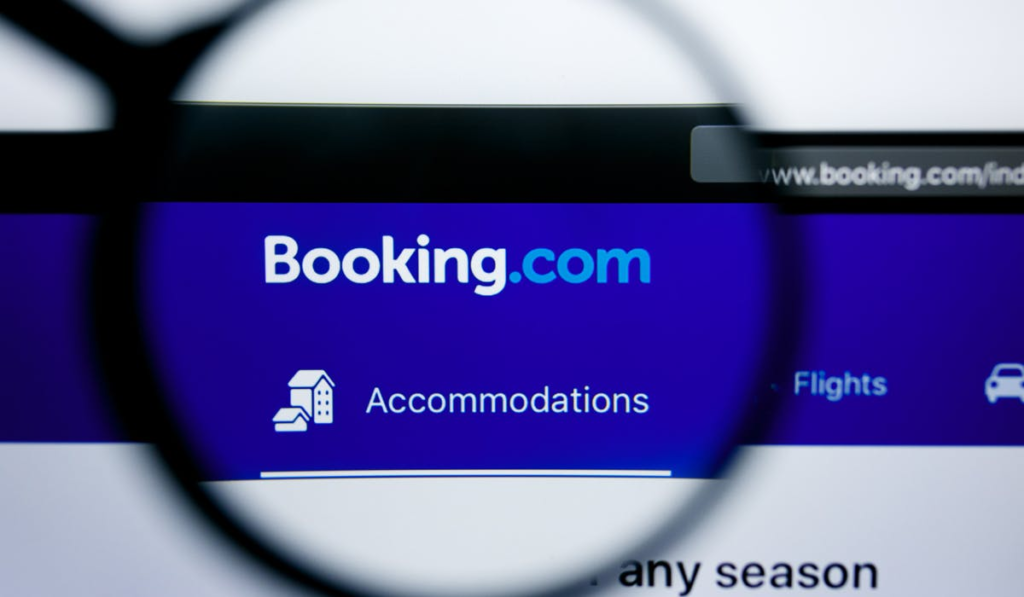Claiming AI has not negatively affected search performance, Booking.com’s CFO sees strong potential to diversify traffic sources.

Booking.com executives are optimistic about the role of generative AI in reshaping how travellers search and plan trips, with large language models (LLMs) being considered as a way to diversify traffic sources.
Speaking to investors as parent company Booking Holdings reported its Q2 results overnight (29 July), CEO Glenn Fogel said LLMs are becoming a key part of how people find travel inspiration and information.
“We know there are hundreds of millions of people who are using different LLMs right now to do all sorts of research and ask questions,” he said. “One of the ones that people are looking at a lot is inspiration for travel, how to do their travel better or where they should go.”
 Booking.com executives are optimistic about the role of generative AI in reshaping how travellers search and plan trips, with large language models (LLMs) being considered as a way to diversify traffic sources.
Booking.com executives are optimistic about the role of generative AI in reshaping how travellers search and plan trips, with large language models (LLMs) being considered as a way to diversify traffic sources.
Speaking to investors as parent company Booking Holdings reported its Q2 results overnight (29 July), CEO Glenn Fogel said LLMs are becoming a key part of how people find travel inspiration and information.
“We know there are hundreds of millions of people who are using different LLMs right now to do all sorts of research and ask questions,” he said. “One of the ones that people are looking at a lot is inspiration for travel, how to do their travel better or where they should go.”
CFO Ewout Lucien Steenbergen claimed LLMs have not negatively impacted search results so far and expressed confidence in their longer-term potential to expand customer acquisition channels.
He noted that around 60% of Booking.com’s traffic currently comes through direct channels, up from a year ago. While it is “too early” to quantify the impact of LLMs on lead generation, both direct traffic and Google-sourced traffic continue to grow.
“If you look at the performance marketing channels, it’s – to some extent – interesting that the Google clicks continue to hold up quite well,” he said. “They’re still growing for accommodation, slightly still period-over-period. So we don’t see yet a decline in that.”
The comments come as Google introduced AI mode in the UK yesterday (29 July), which allows users to ask nuanced questions that would have previously required multiple searches. AI mode has been live in the US since March.
Fogel also hinted that the company is working on a proprietary “travel model”, though gave no details or timeline.
“We’re continuing to learn and experiment finding new modern channels that travellers are using to get inspired for travel,” he said. “We are trying to expand to learn, and the more channels we can use, the better it is for the company in the future.”
Booking.com is one of the key partners for ChatGPT’s Agent Mode, which combines OpenAI’s GPT models with Booking.com’s proprietary data on properties, pricing and availability to power its AI Trip Planner.
Fogel pointed to some ways the company is already using AI, including reducing live agent contact rates, speeding up customer service responses and improving customer satisfaction through voice-enabled generative AI agents.
“It’s great that we have the scale to be able to take advantage of this, having the people, having the capital, having the AI engineers. This is one of the benefits of being a global giant that you can take advantage of these new things,” he added.
Steenbergen also pointed to a broader shift in the company’s marketing strategy. Social media spend rose 25% year-on-year in the quarter. Booking.com is now working to expand its performance marketing channels, but didn’t specify which ones.
“We continue to engage with social media platforms as traveller search patterns and travel discovery methods evolve, particularly at the inspiration stage of the travel funnel,” he added.
Last quarter, the company began shifting focus from brand marketing to social media investment.
For the three months ending 30 June, revenue rose 16% to $6.8bn (£5.1bn), while marketing spend increased 10% year-on-year. Room nights booked rose 8% year-on-year to 309 million.
“Marketing expense as a percentage of gross bookings was a source of leverage compared to the second quarter of 2024, driven by lower brand marketing expenses as well as higher direct mix partially offset by increased spend in social media channels at attractive incremental ROIs,” Fogel added.


